Number of jailed journalists spikes to new global record
The number of journalists jailed around the world set yet another record in 2022. In a year marked by conflict and repression, authoritarian leaders doubled down on their criminalization of independent reporting, deploying increasing cruelty to stifle dissenting voices and undermine press freedom.
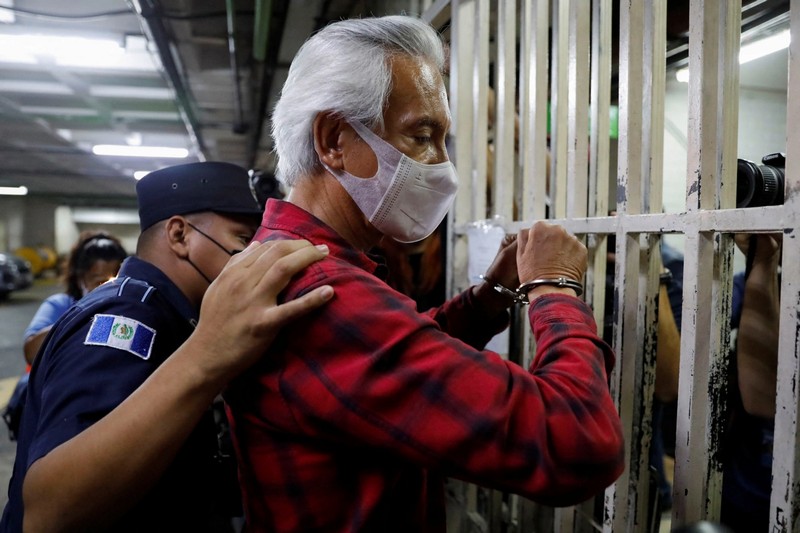
It’s been another record-breaking year for the number of journalists jailed for practicing their profession. The Committee to Protect Journalists’ annual prison census has found that 363 reporters were deprived of their freedom as of December 1, 2022 – a new global high that overtakes last year’s record by 20% and marks another grim milestone in a deteriorating media landscape.
This year’s top five jailers of journalists are Iran, China, Myanmar, Turkey, and Belarus, respectively. A key driver behind authoritarian governments’ increasingly oppressive efforts to stifle the media: trying to keep the lid on broiling discontent in a world disrupted by COVID-19 and the economic fallout from Russia’s war on Ukraine.
In Iran, dozens of journalists are among the estimated 14,000 Iranians arrested during the crackdown on protests sparked by the death in police custody of Mahsa Amini, a 22-year-old Kurdish woman arrested for allegedly breaking Iran’s hijab law. Since September, the demonstrations have spread nationwide, with protesters broadening demands for women’s rights to calls for strikes and the overthrowing of Iran’s leaders. Authorities have imprisoned a record number of female journalists – 22 out of the 49 arrested since the start of the protests are women – a reflection of the prominent role they’ve played in covering this women-led uprising.
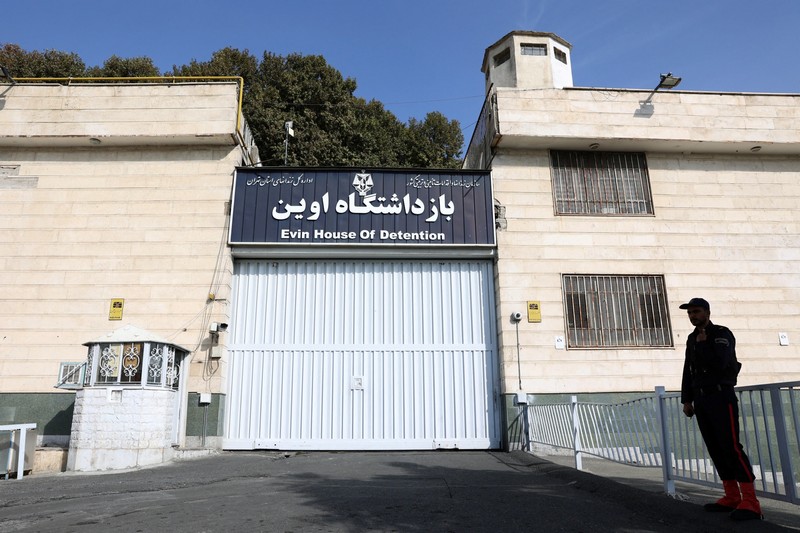
In China, authorities tightened online censorship during recent protests over the government’s zero-COVID lockdown policies and several journalists are reported to have been briefly detained while covering the demonstrations.
CPJ’s data also highlighted another theme: the ongoing repression of minorities.
In Iran, Kurds have borne the brunt of the Iranian government’s retaliation against the protests, and at least nine Kurdish journalists are among those in jail. In Turkey, authorities arrested 25 Kurdish journalists working either for the Mezopotamya News Agency, the all-female JINNEWS outlet, or production companies that made content used by Kurdish outlets in Europe. In Iraq, all three journalists on this year’s census are jailed in Iraqi Kurdistan. And in China, many imprisoned journalists are ethnic Uighurs from Xinjiang, where Beijing has been accused of crimes against humanity for its mass detentions and harsh repression of the region’s mostly Muslim ethnic groups.
Imprisoning journalists is just one measure of how authoritarian leaders try to strangle press freedom. Around the world, governments are also honing tactics like “fake news” laws, are using criminal defamation and vaguely worded legislation to criminalize journalism, are ignoring the rule of law and abusing the judicial system, and are exploiting technology to spy on reporters and their families.
In countries ranging from Russia to Nicaragua to Afghanistan, independent media outlets have been gutted as reporters flee into exile or are intimidated into self-censorship. And while suppressive strategies differ between countries, the cases documented in CPJ’s census share a common thread of official cruelty and vindictiveness.
Some, like China and Saudi Arabia, have a record of keeping journalists in detention even after their sentences end. Others engage in random acts of callousness. In Vietnam, for example, journalist Pham Doan Trang, serving a nine-year sentence for distributing propaganda against the state, was transferred from Hanoi to a remote prison more than 900 miles away from her family – a common tactic to prevent regular prison visits.
In Belarus, Belsat TV correspondent Katsiaryna Andreyeva, one of dozens of journalists detained for documenting nationwide protests against President Aleksandr Lukashenko, was on the verge of completing a two-year prison term when a court sentenced her to another eight years on a charge of “giving away state secrets.”
In Turkey, where the Constitutional Court ordered a retrial for Hatice Duman – already 20 years into a life sentence – the journalist told an Istanbul court this month that prison officials had confiscated her legal documents and notes several weeks ahead of the trial, thereby violating her right to prepare for her defense. (Earlier, Duman told a CPJ in an interview that personal possessions like her desk, books, diary, and even blank pieces of paper were also taken in the ward raid.)
Other key takeaways:
WORST OFFENDERS
1. IRAN
Iran’s crackdown on mass protests following Amini’s death left at least 62 journalists in jail as of December 1. The count would have been even higher had another 21 journalists detained after the start of the demonstrations not been released on bail ahead of the census date.
The number of women among those held is unprecedented. When Iran jailed a then-record number of journalists in the years following the disputed 2009 presidential election, peaking with 47 journalists imprisoned in 2012, just four of those reporters were female.
By contrast, 24 women are listed in this year’s census; 22 were of them arrested after the protests began.
During this year’s arrests, sources told CPJ of a pattern of predawn raids on reporters’ homes, with police seizing their devices and sometimes beating those they took into custody. Often, their coverage disappears too. Many of their social media accounts – a key publishing platform in a country where most media are state-controlled – have vanished, either shut down by the government or preemptively deleted by journalists fearing retaliation for their reporting.
The 62 behind bars represent the highest number documented by CPJ for Iran in the 30 years of its census, easily surpassing the previous imprisonment record set during the aftermath of the country’s disputed 2009 election.
2. CHINA
China’s tight censorship of the media and the fear of speaking out in a country that conducts such extensive surveillance on its people makes it especially difficult to research the exact number of journalists among its prison population. Against that backdrop, the slight drop in the known number of journalists jailed in the country – from a revised total of 48 in 2021 to 43 in 2022 – should not be interpreted as any easing of the country’s intolerance for independent reporting.
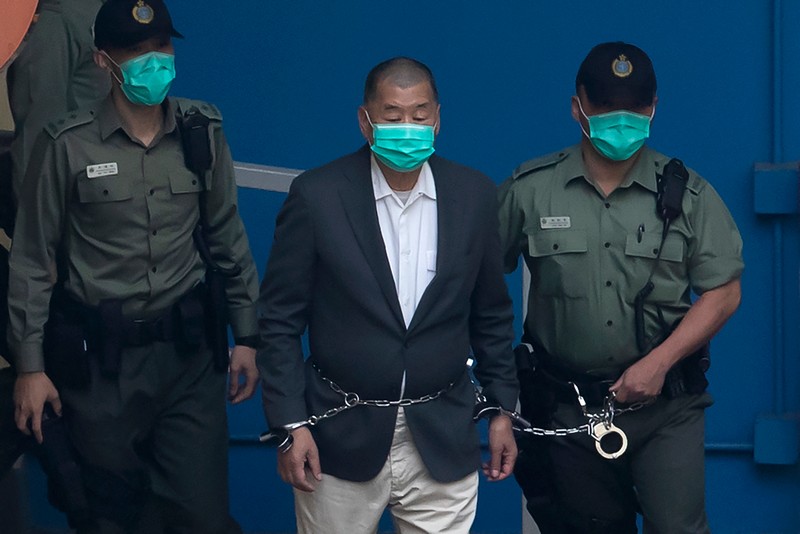
Uighur journalists continue to comprise a significant portion of those serving harsh sentences on nebulous charges. Omerjan Hasan, for example, is serving 15 years for publishing an unofficial history of the Xinjiang region. Ilham Weli, Juret Haji, Mentimin Obul, and Mirkamil Ablimit have been held since 2018 on the accusation of being two-faced – a term Chinese authorities frequently use to describe those they see as openly supporting but secretly opposing government policy. Editor Memetjan Abliz Boriyar, also detained since 2018, is accused of approving the release of books that only later were banned by Chinese authorities. Another disturbing trend: A group of students who worked for Ilham Tohti, the jailed-for-life founder of Xinjiang news website Uighurbiz, are among those believed to have completed their sentences – and then moved to so-called “reeducation camps” instead of being released.
In Hong Kong, independent media outlets have been silenced following Beijing’s punitive targeting of those like pro-democracy media entrepreneur Jimmy Lai. The treatment of Lai, incarcerated since December 2020, is seen as emblematic of authorities’ growing disregard for due process and the “one country, two systems” arrangement guaranteeing Hong Kong’s judicial independence from China. Lai, who has U.K. citizenship, remains in a maximum-security prison even after completing a 20-month sentence on various charges. On December 10, while awaiting the start of another trial that could lead to a life sentence under a draconian national security law, he was sentenced to five years and nine months on fraud charges – even as his legal preparation for the security trial was hampered by Hong Kong authorities’ pushback against the November ruling by the city’s top court that he could be represented by a British lawyer.
3. MYANMAR
Myanmar catapulted into CPJ’s census rankings as the world’s second-worst jailer of journalists in 2021, when a February military coup ousted the country’s elected government and cracked down on coverage of the new regime. According to the human rights group Assistance Association for Political Prisoners, that retaliation took a countrywide toll of more than 2,500 dead and more than 16,000 detained on political charges.
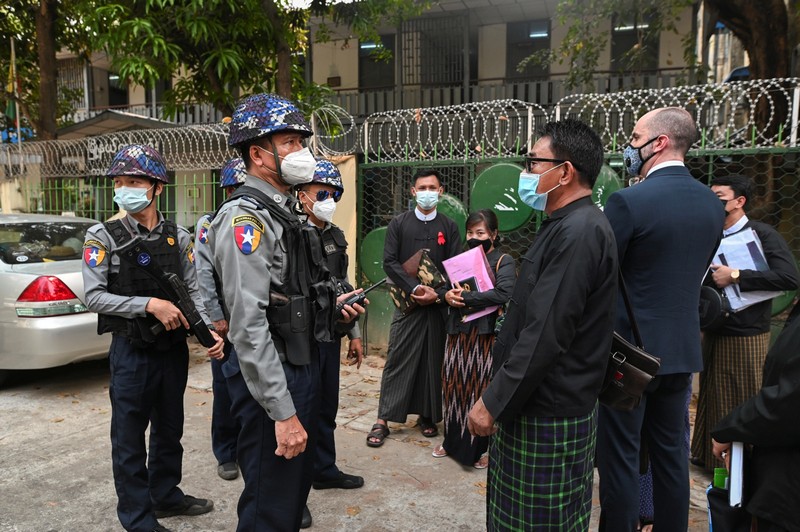
The number of Myanmar journalists known to be jailed on December 1 rose to at least 42 – up from a revised 30 last year – as the regime doubled down on its efforts to mute reporters and disrupt the country’s few remaining independent media outlets. Many news organizations remain reluctant to identify their detained staff and freelancers to avoid the harsher sentences often meted out to journalists.
Nearly half of those detained were sentenced in 2022, most under an anti-state provision that broadly penalizes “incitement” and “false news.” In another case in November, journalist Myo San Soe was sentenced to 15 years in prison on terrorism charges for contacting members of People’s Defense Forces, an array of insurgent groups fighting the regime.
4. TURKEY
The number of journalists held in Turkey rose from 18 in 2021 to 40 in 2022 after the arrests of 25 Kurdish journalists in the second half of the year. The journalists’ lawyers told CPJ all were jailed on suspicion of terrorism – a result of the country’s ongoing efforts to silence those it associates with the outlawed Kurdistan Workers’ Party (PKK).
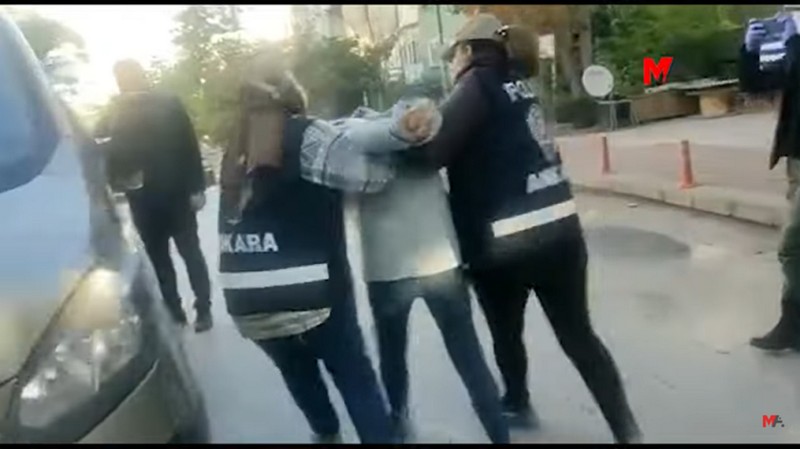
And while even this year’s jump in numbers has left fewer journalists in prison than in the aftermath of a failed 2016 coup attempt, Turkey’s independent media remain decimated by government shutdowns, takeovers, and the forcing of scores of journalists into exile or out of the profession.
Many now fear that the latest arrests could signal a fresh assault on press freedom ahead of next year’s elections, especially given the Turkish parliament’s October ratification of a controversial media law mandating prison terms for those deemed to be spreading disinformation.
5. BELARUS
Belarus held 26 journalists in custody on December 1 – up from 19 last year. Almost half are yet to be sentenced; two are serving terms of 10 or more years. All known charges are either retaliatory or anti-state, such as treason.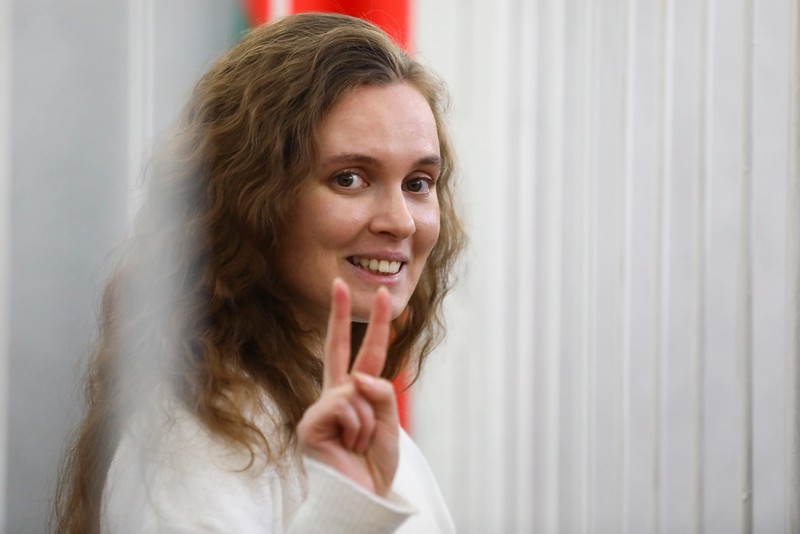
The arrests have taken place against the backdrop of Lukashenko’s ongoing vindictiveness against those covering the aftermath of his disputed 2020 election. Among those still held is Raman Pratasevich, the journalist whose arrest caused a global outcry when Belarus authorities diverted a Lithuania-bound commercial flight to the Belarus capital of Minsk to take him into custody.
REGIONAL REPRESSION
ASIA
Media suppression in China, Myanmar, and Vietnam make Asia the continent with the highest number of imprisoned journalists – a total of 119.
Vietnam, which holds 21, shows little tolerance for independent journalism, invoking tough sentences for those convicted of anti-state crimes. In October, it sentenced Le Manh Ha to eight years in prison, to be followed by five years of house arrest; in August it sentenced blogger Le Anh Hung to five years for “abusing democratic freedoms to infringe upon the interests of the state, organizations and individuals.”
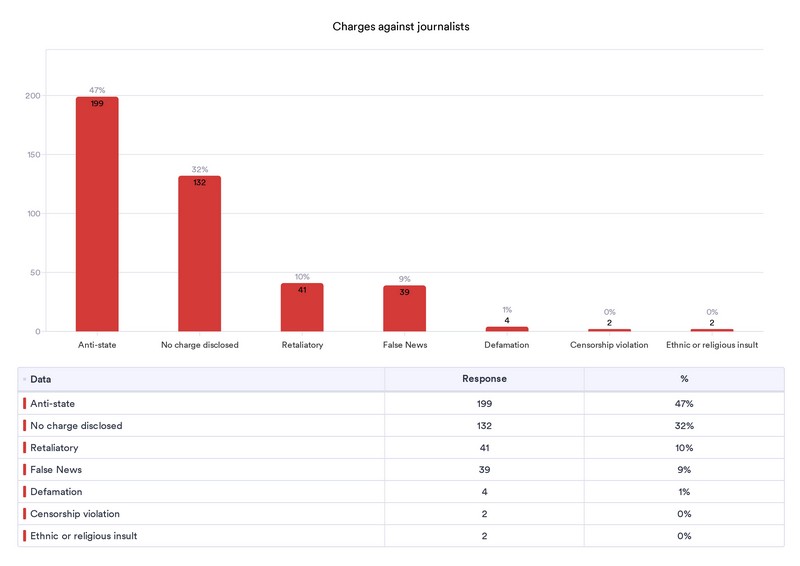
Among other detainees are Pham Doan Trang, a winner of a CPJ International Press Freedom Award in 2022. Trang is serving a nine-year prison sentence under a law that bans making or spreading news against the state.
India, with seven journalists in jail, continues to draw criticism over its treatment of the media, in particular its use of the Jammu and Kashmir Public Safety Act, a preventive detention law, to keep Kashmiri journalists Aasif Sultan, Fahad Shah, and Sajad Gul behind bars after they were granted court-ordered bail in separate cases.
Afghanistan, with three imprisoned journalists, appears on CPJ’s census for the first time in 12 years. Hundreds of Afghan journalists fled the country after the Taliban took back control of the country in August 2021; those who stayed face sometimes violent pressure to conform to its fundamentalist ideology.
SUB-SAHARAN AFRICA
Prisoner numbers paint a misleading picture of regional press freedom in sub-Saharan Africa. Eritrea remains the region’s worst jailer of journalists, ranking ninth globally. The 16 in its cells have been held without trial or access to their families or lawyers for periods ranging from 17 to 22 years.
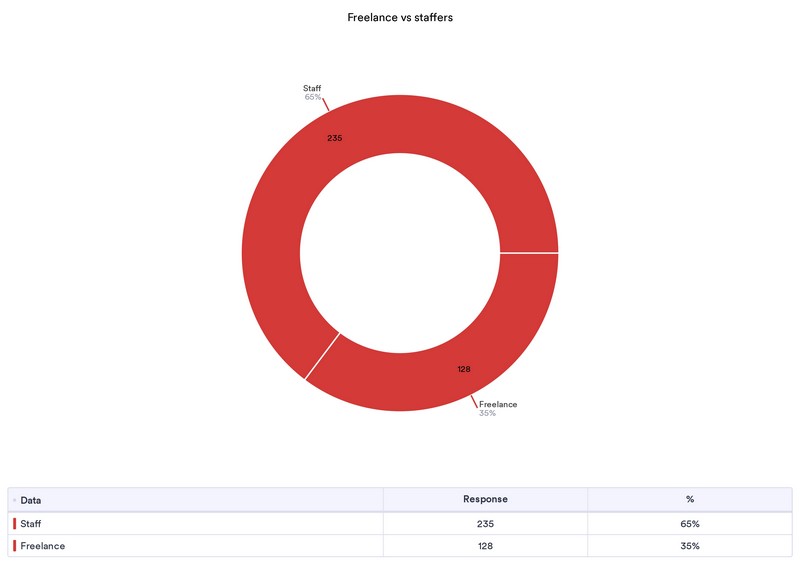
Cameroon has appeared in the prison census every year since 2014. It is the second-worst jailer in the region, with five arbitrarily detained under an opaque judicial system that includes the use of military tribunals to prosecute journalists, who are civilians under international law.
Ethiopia, which last year ranked a close second to Eritrea as the region’s worst jailer of journalists, had only one journalist in jail at the time of this year’s census. (That journalist, Natnael Gecho, was released on bail after the December 1 census date.) However, authorities have intermittently detained more than 60 journalists – most for prolonged periods without formal charges – since the start of Ethiopia’s civil war in November 2020. On-the-ground fighting is accompanied by misinformation, disinformation, and a war of narratives on social media. At least five journalists are being held in the Tigray rebel-controlled city of Mekelle. They are not listed in CPJ’s census because their jailers are non-state actors, but they are a telling indicator of the dangerous conditions for reporters trying to cover the conflict.
In Rwanda, three of the four journalists behind bars publish their work on YouTube – one of the country’s few remaining publishing platforms as the space for dissenting speech closes down within the traditional media. At least two of those YouTubers behind bars, Aimable Karasira and Dieudonne Niyonsenga (also known as Hassan Cyuma), have allegedly been subjected to torture and ill-treatment.
LATIN AMERICA
The relatively low number of jailed journalists – two in Nicaragua, one in Cuba, and one in Guatemala – belies the continued decline of press freedom across the region. The year 2022 was especially deadly for journalists in Mexico and Haiti, and several countries passed legislation that introduced new options for criminalizing speech and reporting.
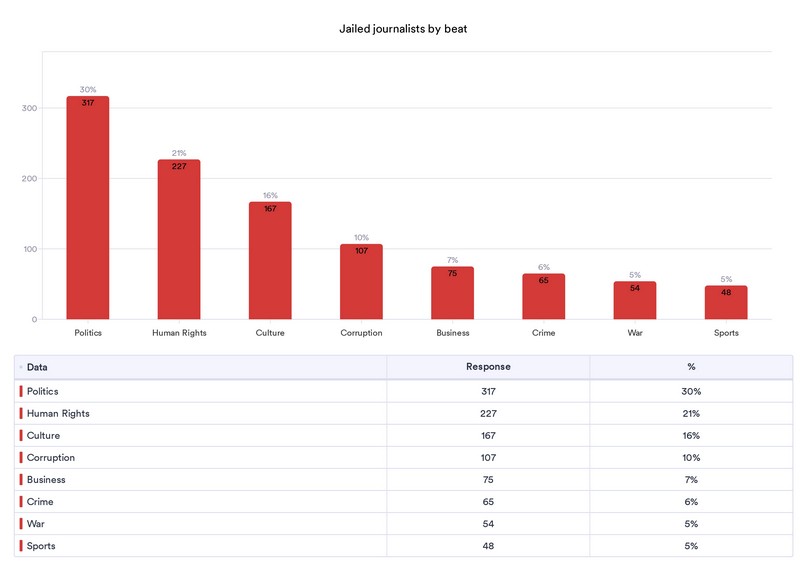
In Guatemala, the high-profile arrest of José Rubén Zamora sends a chilling message to journalists, especially investigative and independent reporters, ahead of next year’s elections and amid an ongoing crackdown on prosecutors, judges, and journalists who previously brought corruption cases to light. Zamora, the founder and president of elPeriódico, faces charges of money laundering, blackmail, and influence peddling – charges seen as retaliation for elPeriódico’s reporting on alleged corruption involving President Alejandro Giammattei and Attorney General Consuelo Porras. ElPeriódico stopped publishing in print on December 1, saying it was forced to do so after “120 days of political and economic pressure.”
In Nicaragua, attacks, arrests, and threats of imprisonment have forced almost all of the country’s independent journalists either into exile or out of their jobs; a similar situation exists in Cuba.
MIDDLE EAST AND NORTH AFRICA
Egypt and Saudi Arabia remain among the world’s top 10 jailers of journalists, with 21 and 11 prisoners, respectively.
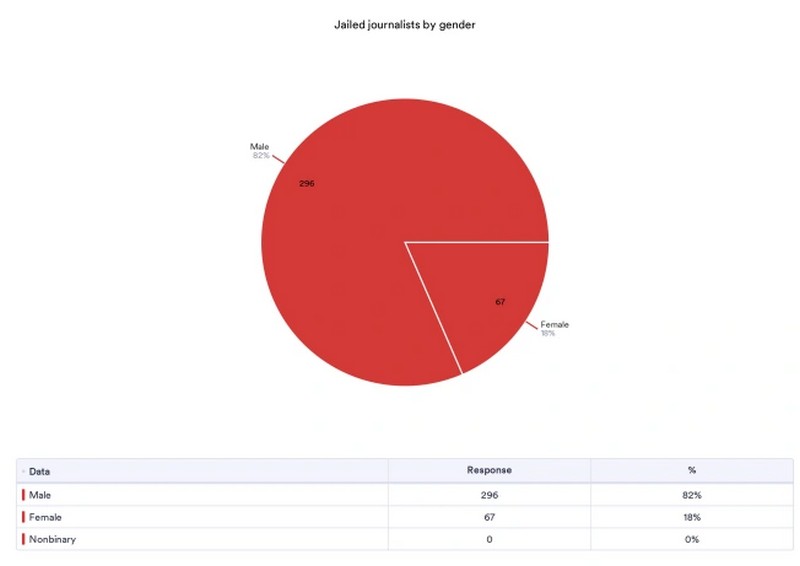
Egypt, under pressure from the U.S. and the European Parliament over its human rights record, included some journalists in broader prisoner releases during the year, but continued to detain others – among them editor Ahmed Fayez for posting on Facebook that prison authorities are force-feeding journalist Alaa Abdelfattah to keep him alive during his prolonged hunger strike.
Although a slight drop in numbers from last year, when Egypt held 25 and Saudi Arabia 14, media remain under pressure and, in the case of Saudi Arabia, still confront the chilling intimidatory effect of the murder of journalist Jamal Khashoggi.
In Qatar, while no journalists were imprisoned for their work at the time of CPJ’s census, coverage of this year’s World Cup highlighted the country’s censorship and strict media laws.
EUROPE AND CENTRAL ASIA
Russia’s restrictive new laws to control the narrative over its war on Ukraine, including a ban on calling the conflict a war, have gutted the country’s remaining independent media. Scores of Russian journalists avoided incarceration by fleeing into exile. Of the 19 known to be in Russian custody, several face sentences of up to 10 years on charges of spreading “fake news.”
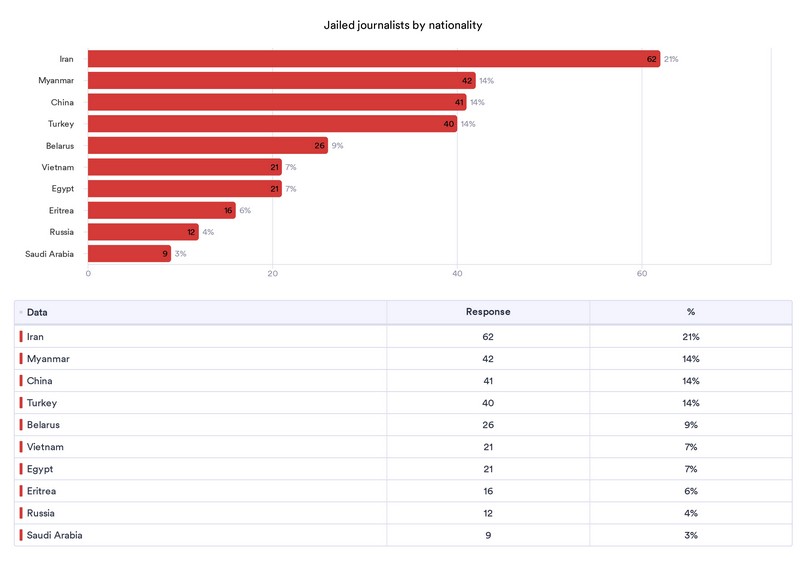
Tajikistan held six journalists, making it the leading jailer in Central Asia. The prisoners, whose arrests followed a brutal government crackdown in the Gorno-Badakhshan region, were tried secretly behind closed doors in detention centers, not courts, and sentenced to lengthy prison terms amid allegations of torture.
Georgia, a country known until recently for its democratic practices, is listed on CPJ’s census for the first time, with TV journalist Nika Gvaramia beginning a three-and-a-half year prison sentence in May 2022.
[Editor’s note: The characterization of the arrests in the Gorno-Badakhshan region of Tajikistan has been corrected in the penultimate paragraph.]
CENSUS METHODOLOGY
The prison census accounts only for journalists in government custody and does not include those who have disappeared or are held captive by non-state actors. These cases are classified as “missing” or “abducted.”
CPJ defines journalists as people who cover the news or comment on public affairs in any media, including print, photographs, radio, television, and online. In its annual prison census, CPJ includes only those journalists who it has confirmed have been imprisoned in relation to their work.
CPJ’s list is a snapshot of those incarcerated at 12:01 a.m. on December 1, 2022. It does not include the many journalists imprisoned and released throughout the year; accounts of those cases can be found at http://cpj.org. Journalists remain on CPJ’s list until the organization determines with reasonable certainty that they have been released or have died in custody.
Arlene Getz is editorial director of the Committee to Protect Journalists. Now based in New York, she has reported from Africa, Europe, Asia, and the Middle East as a foreign correspondent, editor, and editorial executive for Newsweek. Prior to joining CPJ, she spent nine years at Reuters, where she was the editor in charge of the service’s global Commentary section.
Census reporting by Beh Lih Yi, Anna Brakha, Shawn Crispin, Doja Daoud, Sonali Dhawan, Assane Diagne, Jan-Albert Hootsen, Iris Hsu, Nick Lewis, Kunal Majumder, Sherif Mansour, Scott Mayemba, Attila Mong, Muthoki Mumo, Renata Neder, Özgür Ögret, Evelyn Okakwu, Angela Quintal, Waliullah Rahmani, Yeganeh Rezaian, Justin Shilad, Jonathan Rozen, Gulnoza Said, Natalie Southwick, and Dánae Vílchez
Editing by Arlene Getz, Jennifer Dunham, Naomi Zeveloff, Erik Crouch, Sarah Spicer, Madeline Earp, Suzannah Gonzales, and Tom Barkley
 @bajmedia
@bajmedia
